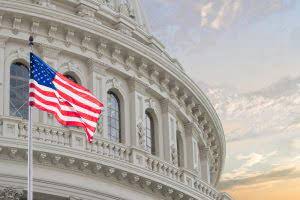Accountants for Musicians Specialist Musician Accountancy

For those who want to give back, we can also set up charities, trusts and foundations for topics you’re passionate about. We always aim to support our clients for the entirety of their careers and beyond. When it comes to planning for the future, with the help of our expansive professional network, we’ll put you in touch with reliable overseas accountants and tax advisors. Our business management services can provide additional monthly reports, manage your bank accounts and invoices for you, and assist you with business plans and related tax planning.
We handle taxes for the music industry
Melbourne accountant who stole $2 million from musicians, restaurateurs pleads guilty – 9News
Melbourne accountant who stole $2 million from musicians, restaurateurs pleads guilty.
Posted: Fri, 08 Mar 2024 08:00:00 GMT [source]
Accountants can assist in building up an effective accounting system to accurately and conveniently assess profitability, monitor prices and expenses, control budgets, and forecast future speculation trends. Accountants can also consult with their clients on tax-related problems, such as tax compliance and regulations and tax reduction methods. Moreover, accountants can develop accurate audit reports, financial statements, and other accounting documentation required by government regulation and lending institutions. When you pay a professional to do your taxes, you are getting the added benefit of numerous other services, including accounting, record-keeping, tax consultation, and auditing.
Should Small Businesses Use a Tax Preparer?
We’ll also liaise with agents and promoters, and by the end of the tour we’ll have created the accounts and registered any taxes you need to pay. We help emerging artists from the moment you start playing your first gigs. YMU will complete your tax returns and self-assessments for you, acting as your agent to deal with HMRC directly.
- Whether you can use Spotify as a tax write-off depends on the specific circumstances of your music-related activities and how you use the platform.
- You can use this money to reinvest in your music career, pay yourself a salary, or save for taxes.
- Our Site does not include all software companies or all available vendors.
- However, if you use Spotify solely for personal entertainment, it wouldn’t typically qualify as a legitimate business expense for tax purposes.
- The risk in this arrangement is for the one holding the financial responsibility, because if the other bandmates bail that person will be stuck with the bill.
Start making your money perform
Also, when setting an accountant’s fees, remember to calculate the time or money your company will spend on compiling documents, bookkeeping and running any software required to facilitate their job. Small businesses often benefit from using a tax preparer who specializes in this area accountant for musicians of tax preparation. Tax professionals may save you money and time, and ensure you are following relevant tax rules for business owners. Although doing your taxes independently using tax software can save you money versus hiring a professional, working with a CPA has many benefits.
- We help emerging artists from the moment you start playing your first gigs.
- It is aimed at businesses of all sizes and includes integrations with various other business tools.
- The difference in cost between an accountant and a tax preparer depends on the individual.
- A musician herself, she has served as featured panelist at the International Music Conference, Driven Music Conference and as a panelist at the Xero Roadshow.
- Your assets should always be greater than your liabilities, and the difference is your net worth.
- The first step in interpreting your financial statements is to identify your revenue streams.
It is aimed at businesses of all sizes and includes integrations with various other business tools. Sage Intacct is a cloud-based accounting software that provides financial management, inventory management, and order management features. Our music accountants have over 40 years of experience working with musicians, record labels and managers, handling tax queries, providing specialist music accounting, and royalty management. No matter what level you’re at in your music career, it’s important to keep track of your finances and know how to manage your money. In this article, we’re going to give you a crash course in music accounting.
- This independence provides an additional trusted outlet to assess financial decisions.
- You’ll need to pay higher rates for these accreditations since they portray credibility.
- If you fill out a Schedule E, then your partnership must also have filled out a Form 1065 as well as an individual Schedule K-1 for each partner.
- In these circumstances, accountants may charge you more consultation fees and overtime work.
- Our accounting package is perfect for contracting professionals and will take the hassle out of accounting, which means you will have more time to spend with family and friends, as well as your hobbies.
- However, since this field is so specialized, the aspiring Accountant doesn’t have to land a job with a professional music industry accounting firm right out of school to get the experience required.
- What’s my best approach for filling out the income-related forms they might give me?
Music Business

This includes the cost of any materials you use to create your music, such as instruments, recording equipment, and software. You’ll also need to factor in your time spent creating music, which you can calculate by using an hourly rate. Once you have your COGS, you can deduct this amount from your total income to calculate your gross profit. Now that you know your gross profit, you can start to deduct your expenses. These include things like advertising, website costs, and travel expenses.
How to Create a Budget
But what you may not know is how to go about accounting for your music-related income and expenses. The first thing you need to do is keep track of all your music-related income. This includes money you make from performances, sales of your music, and any other sources.

- Your income is anything you earned, including salaries, money from gigs, interest from your bank accounts, profit from investments, royalties, etc.
- There’s no legal requirement to set up a separate business bank account as an independent musician, but it’s what we recommend anyways.
- Here is some basic information on 1040 forms, and some of the common additional forms used by musicians.
- Once you know where your revenue is coming from, you can track your expenses to see where you are spending the most money.
- There, you can verify their credentials and track their license renewal dates.
- My friend’s band has started to make a little more money at gigs, about $600–800 a show.
